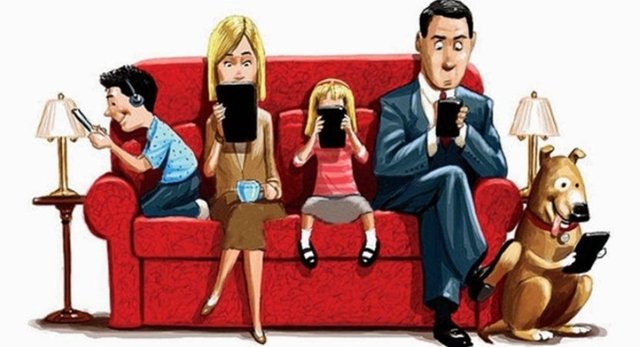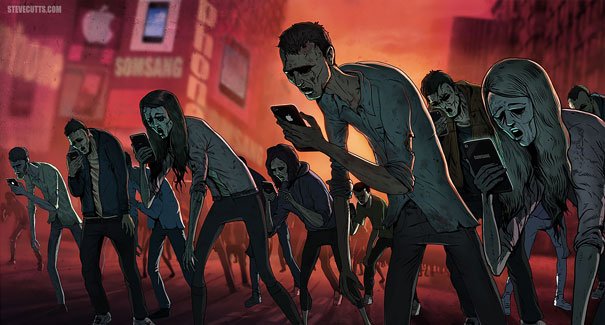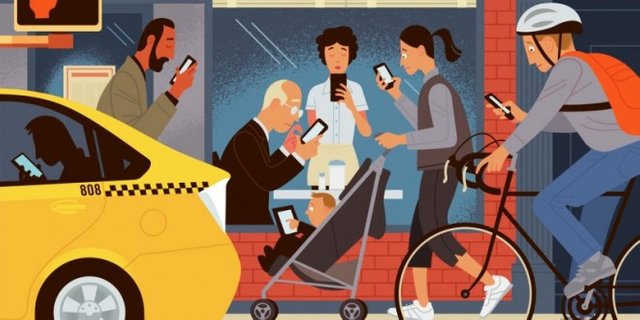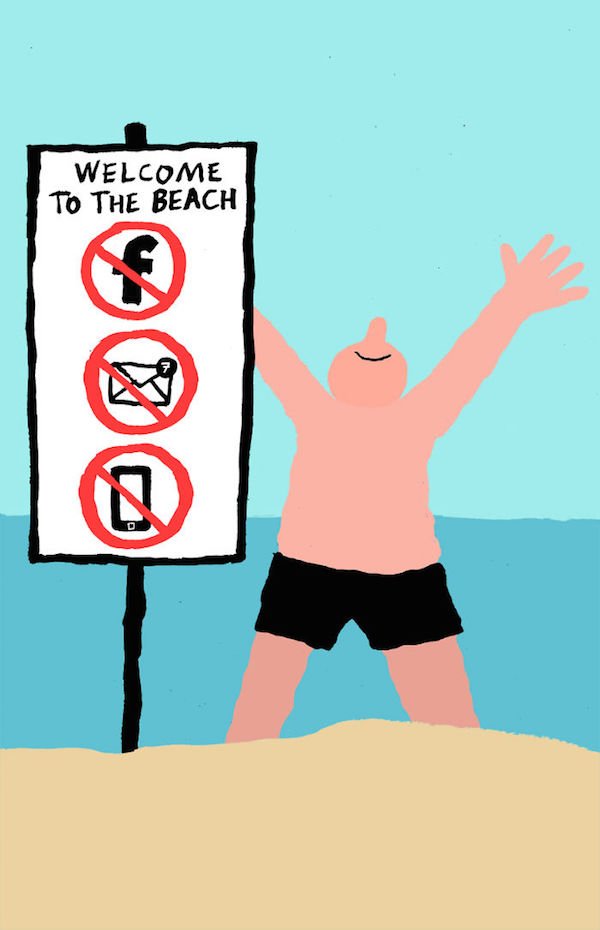
You are addicted to technology, you will know it below ...
● Can not travel to a site without telling on Twitter where you are? Do you tae the phone to the toilet? Beware, social networks can be more addictive than tobacco or alcohol.
● The likes and retweets generate dopamine, which in the long run can generate addiction, and bad news if you see that absolutely nobody gave the "like" of your last photo.
● What to do, then? To more leisure activities that are pleasing, less dependence on the screens.

Consulting the email, sending a whatsapp, playing, reading the news ...
The possibilities that smartphones offer us are almost endless; At no time in history have we had such an intimate relationship with a gadget ... If we even took it to the bathroom and then to bed!
Nobody doubts the utility and the benefits of technology, the problem appears when you start to overwhelm if you do not have it within reach of the fingertips.

Or when you are so attached to it that you leave other aspects of your life aside. Is there really an addiction to social networks? Can it be classified as such or is it a symptom of other, deeper ills? What is the normal use of these tools and when can it be considered a problem?
The phenomenon is relatively new, so addiction to social networks does not appear as a disorder in the DSM (the Diagnostic and Statistical Manual of Mental Disorders, the bible as far as mental disorders are concerned), although in some countries, such as United, they already consider it official.
According to Reuters, a clinic claims to have treated about a hundred patients with this problem and at the Tavistock Institute of Human Relations in London they claim that Facebook and Twitter can be more addictive than tobacco and alcohol.
According to these experts, the likes and retweets generate dopamine, which in the long run can generate addiction (if you see that absolutely nobody gave the "like" of your last photo on that paradisiacal beach).

Even terms have emerged about the fear of leaving home without the mobile phone, such as nomophobia (acronym for no mobile phone phobia). The term emerged in a survey conducted by the United Kingdom postal service in which it was concluded that 53% of English users of mobile phones suffered from this problem.
In fact, experiments are already being carried out on people who leave the networks, of whatever kind, for a while. The result? The experience makes them value more the direct contact with close people and friends. They also improve their attention and concentration by not constantly receiving messages.
Without becoming as strict as the Asians and while the scientific community can not agree on whether it can be classified as an addiction or not, the truth is that our cities are full of walking zombies more aware of your phone than the pedestrian crossing or of the streetlights; or from diners in restaurants that no longer speak, but interact with other beings, we imagine, through the screen.

We can not abstract from technology and the solution is not to eliminate it. But we must learn (and teach the younger ones) to make good use of all these tools. And if you do not put on Facebook how happy you are (in theory) then nothing happens either.
I invite you to comment -upvote-seguime- @ arpost





Este Post ha recibido un Upvote desde la cuenta del King: @dineroconopcion, El cual es un Grupo de Soporte mantenido por 5 personas mas que quieren ayudarte a llegar hacer un Top Autor En Steemit sin tener que invertir en Steem Power. Te Gustaria Ser Parte De Este Projecto?
This Post has been Upvote from the King's Account: @dineroconopcion, It's a Support Group by 5 other people that want to help you be a Top Steemit Author without having to invest into Steem Power. Would You Like To Be Part of this Project?
Gracias por el Upvote King!!